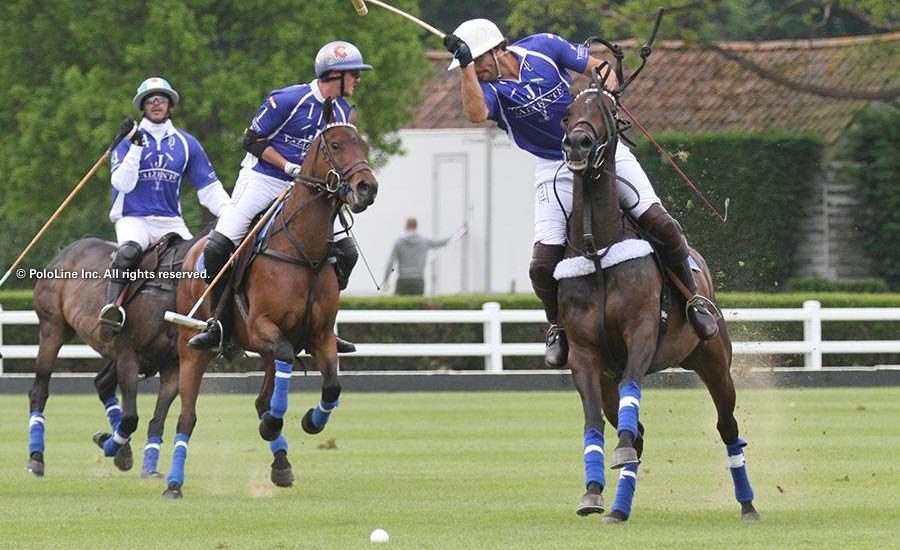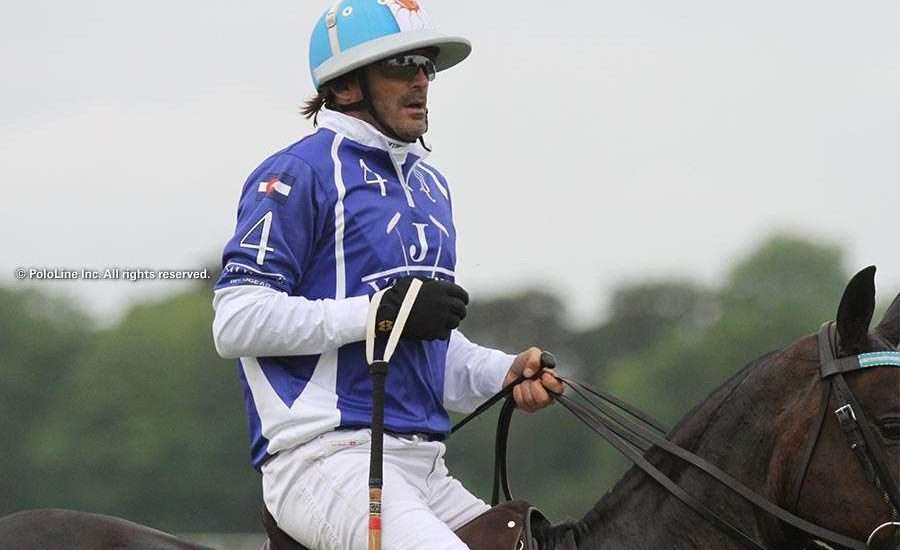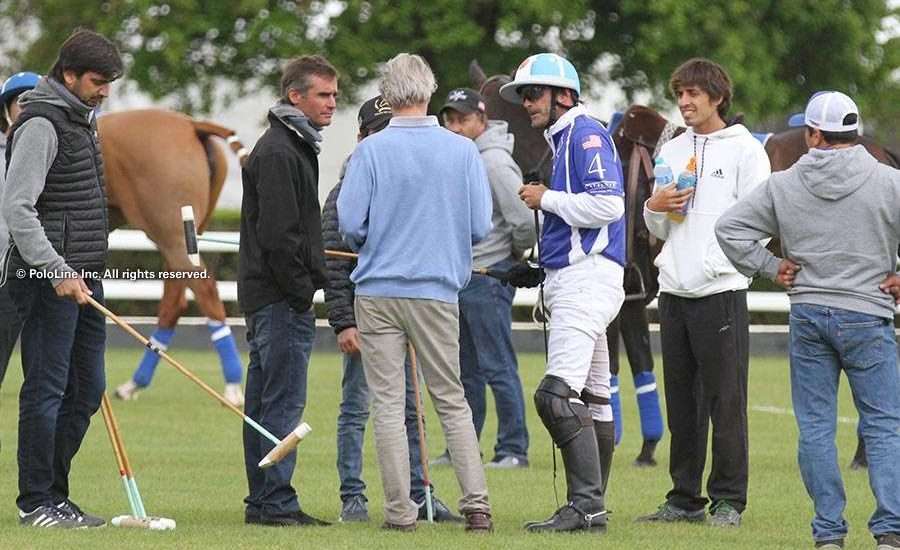During today’s Prince of Wales Trophy match at the Royal County of Berkshire Polo Club, where Valiente beat Monterosso, controversy arose regarding helmets.
You will recall that the HPA announced new security requirements for the helmets to be used in the current English season, as was published by Pololine in February. When the match was about to kick off, umpires Peter Wright and Julian Appleby approached three of Valiente’s players (Adolfo Cambiaso, Magoo Laprida, Rob Jornayvaz), as they were not using the new helmets and they were asked to change them. However, the match was still played. It is worth mentioning that there was not a single HPA official at the Berkshire to make a different call, so responsibility should not be placed only on the umpires.
During a horse change in the third chukka, Michael Amoore, Polo Manager of the Royal County of Berkshire Polo Club , approached Valiente’s players and demand they change their helmets. That was when things took a turn. Speaking to Pololine, Adolfo Cambiaso explained: “I have a letter by both English and Argentine lawyers, stating that in the case the HPA force me to use a particular helmet, which is not approved for polo, they must insure me in case something bad happens to me. When they asked me to change my helmet in the fifth chukka, I told them that both the HPA and the club must sign my letter. And since they didn’t sign it, nothing happened.”
“I think they must approve the helmet for polo first. But they have not been tested for polo; I’ve been playing polo around the world for over twenty years, and nothing has ever happened to me. If something happens to me using this new helmet, I have the right to go against the HPA and the club I’m playing at,” states Cambiaso.
The letter mentioned by Cambiaso, with a security argument, was supported by other high-goal players. La Indiana’s Facundo Pieres said: “The truth is that if they are going to make us use something, we should be covered, insured. The idea to improve the helmets is great. But I don’t like the way they have gone about doing it; it should be optional. I have tried the helmets and they seem good. But it’s not corroborated that nothing happens to you if you fall or are hit hard.”
On the other hand, Emlor’s Diego Cavanagh, said: “I think it’s great that technology keeps on improving and more secure equipment comes out. But these helmets are not proven to be safer. In fact, I saw helmets in the medium-goal that looked as if they were made for cyclists. I think it would be good if these helmets were optional, but I don’t think we should be forced to use them.”
Despite consultations with different members of the HPA, the governing body of the polo in England has announced that they will not make any statements until they receive the official report about what happened at the Berkshire on Saturday afternoon. The letter mentioned by Cambiaso was also supported by players such as Juan Martín Nero, Gonzalito Pieres, Polito Pieres. Other players approached by Pololine decided not to comment.
La Bamba’s Pelon Stirling opinion: “If they force us to use a particular helmet, it’s their responsibility if anything happens to us. So, if they take responsibility, perfect. But since they don’t, they should let us use the helmet we want.”
Nico Pieres: “I saw the letter and I support it, but I got a new helmet when I arrived here. But we should be insured by the HPA or someone if they force us to use the helmets they want. Every player has a contract or something with a brand and they are forcing us to use a helmet that is not a 100% safe.”
Even though the English season kicked off some weeks ago, these three Valiente players were the ones who took the initiative to keep using their original helmets until they receive something from the HPA saying that they have been tested for polo. “It should be optional this year until they can prove that these helmets are really safe for polo. The umpires only check if the helmets have the 3 stripes. I said to the guy from the club [Michael Amoore] that they must take responsibility alongside the HPA. If they sign my letter, I will use that helmet, problem solved. The helmets are tested on a machine, but not playing polo. It’s great to implement new things, but they can’t force us to use something that is not proven to be safe,” concludes Cambiaso.


